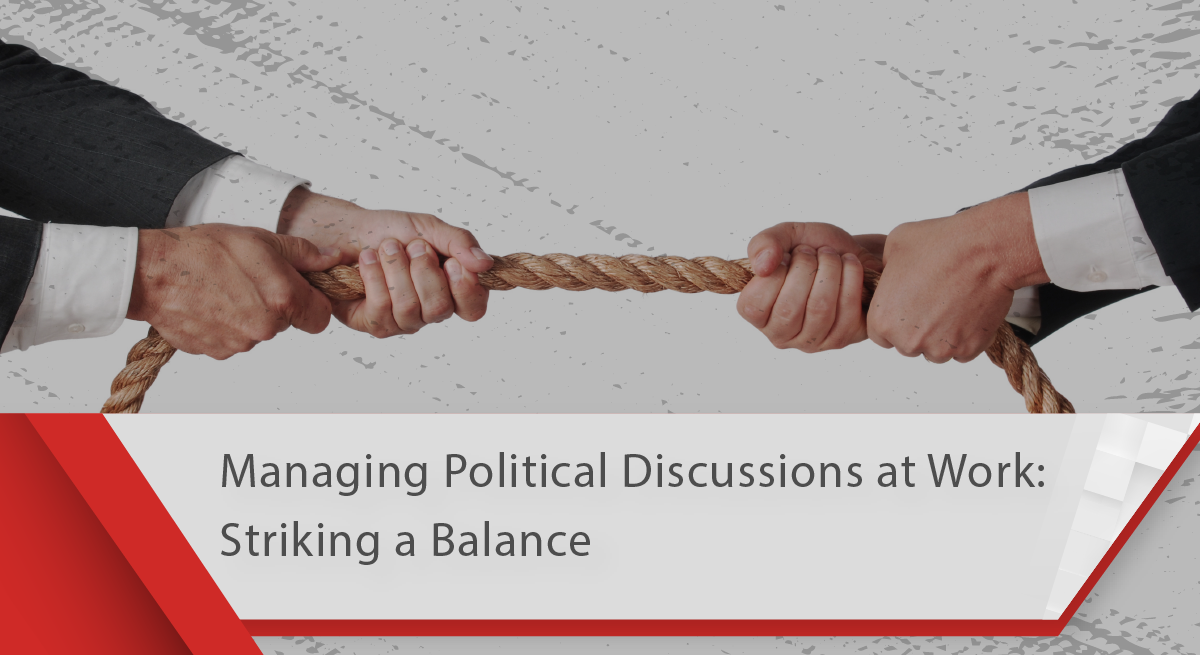
AI: A Tale Older than ChatGPT
September 13, 2023
Bust Breast Cancer
October 10, 2023Politics are in the air with both state and federal elections looming in the future. “With today’s increased polarization between the two main political parties, unfortunately, attitudes toward those who believe differently can be quite harsh,” says Roger Carbajal, a Senior Human Resources Specialist. This raises the question:
Do political discussions belong in the workplace?
How much control do employers really have over what employees discuss in the workplace? Individual political beliefs are rooted in each person’s own unique experience and people may take it personally when someone disagrees with these beliefs or espouses different ideas.
The freedom of speech guaranteed by the First Amendment to the U.S. Constitution applies only to actions taken by the government and public sector employers. Private sector employers can limit political discussions during normal work hours and in the workplace but any limitation on political discussions or activity should be done in a written policy in the company’s Employee Handbook.
What employers can do is:
- Caution employees about engaging in political disagreements (or, really, any kind of disagreements!) that escalate to emotional outbursts which involve raised voices, profanity, name-calling, or other disruptive behavior.
- Employers may also prohibit wearing or displaying items (clothing, signs, etc.) that identify political affiliation in the workplace but this must be done unilaterally, not just impacting those who hold different beliefs than those of the owner or management, so that these limitations are not discriminatory.
What is employment discrimination based on politics?
According to NOLO, a publisher of do-it-yourself legal books and software: “Discrimination based on politics happens when an employer makes job decisions because of an employee’s political beliefs, party affiliation, or civic activities. An employer that, for example, refuses to hire applicants who vote Republican, fires anyone who supports gun control, or demotes someone who runs for the local school board is engaged in political discrimination.”
Only a few states prohibit employment discrimination based on political affiliation, but the National Labor Relations Act (NLRA) protects all employees who discuss terms and conditions of employment, including salary. For example, the NLRA protects employee discussions about efforts to increase the minimum wage, etc.
An HR professional can help you with all of your human resource needs.
From hiring the right employees, running background checks, creating employee handbooks that include anti-harassment policies and procedures, and so much more, Next Level Solutions can work with you to provide the services that you need to run your business.
For more information about our accounting and human resource services, contact Next Level Solutions at in**@**********ol.net or (225) 330-8347.


